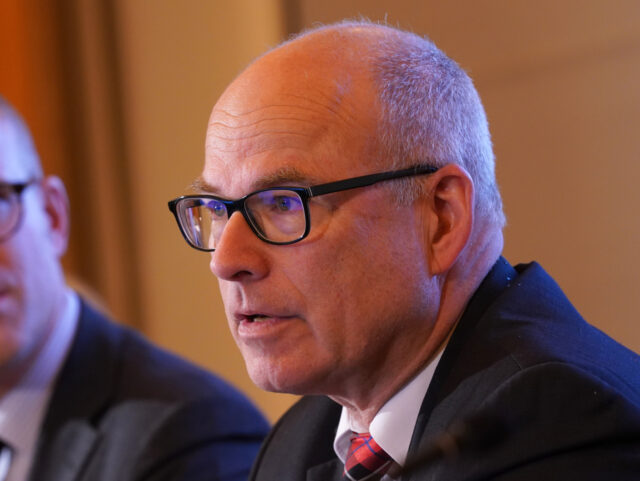A left-wing German politician has expressed his concern that all legacy media outlets in Germany now appear to be the same, with little engagement in core facts and relying on each other for opinions.
Ties Rabe, a politician with the left-wing Social Democratic Party, has complained that all legacy media outlets in Germany now appear to have the exact same view on a wide variety of topics.
The politician’s observation comes at a time when other countries on the European continent deal with increasing government interference in the media which at times appears to result in biased reporting.
According to a report by Der Spiegel, Rabe lashed out at the relative similarity in the views of media outlets in Germany while attending the finals of a school debating competition.
Speaking to both children and teachers attending the event, the senior Hamburg official complained that articles in many of the major newspapers were almost identical with the same terms being just “swapped around” in each publication’s article.
He added that none of the publications appeared to be looking at the core facts of what they write about, but merely echoing the views of one another.
“Has anyone ever cared that studies exist? That there are facts?” he asked the group, adding that he missed a time when people examined the truth of various claims “without opinion”.
‘Paying for Our Own Demise’ Government Pays Major Newspaper to Publish ‘Pro-EU Propaganda’ Puff Piece https://t.co/D1JzGSzIer
— Breitbart London (@BreitbartLondon) May 9, 2022
He went on to advise those present that they must not be “satisfied” with accepting as true the first bit of “gibberish” they read about a subject, but always as “Is that really correct? Is that true?”
Such a suggestion reportedly prompted a round of applause from those at the competition, but also reportedly angered one of the students attending the event.
The student reportedly went on to contact one of the publications criticised by Rabe — Der Spiegel — which has subsequently compared the centre-left politician’s statement to those commonly espoused by “right-wing populist[s]”.
However, the official’s concerns regarding the overwhelming similarity of legacy news outlets are not unusual in Europe, with some expressing concern at the increasing influence governments have over supposedly independent media.
Controversy emerged in Ireland last year after the government paid one of the country’s major newspapers to run a sponsored article heaping praise on the European Union.
Described as “propaganda” by critics, the piece claimed that the island nation was “becoming resilient, diverse and empowered” due to its membership of the bloc, a claim that has not exactly been challenged by the rest of the outlets reporting.
In an editorial published late last year, the outlet claimed in an editorial that it was “abundantly clear how much Ireland needs Europe”, with the publication frequently penning pieces depicting the bloc in a positive light.
Meanwhile, the appointment of Boris Johnson ally Richard Sharp to the head of the BBC has prompted significant criticism in the UK, with some accusing the broadcaster of becoming increasingly cosier with the mostly-neoliberal Conservative Party since.
“I don’t think his appointment should stand,” former BBC head John Birt remarked while speaking to The Guardian.
“He’s a person of obvious weight and consequence, but in one vital respect he was an unsuitable candidate, and the appointment process itself was fatally flawed,” he continued. “The unsuitability came from the very process of navigating a loan for the prime minister at exactly the same time as applying for the job at the BBC. It’s the cosiness of that arrangement that made it unsuitable, and I wish the cabinet secretary had called it out.”
U.S. Ambassador Accuses Fake News Scandal German Magazine of ‘Anti-American’ Bias https://t.co/1uCHRUIooH
— Breitbart London (@BreitbartLondon) December 24, 2018

COMMENTS
Please let us know if you're having issues with commenting.